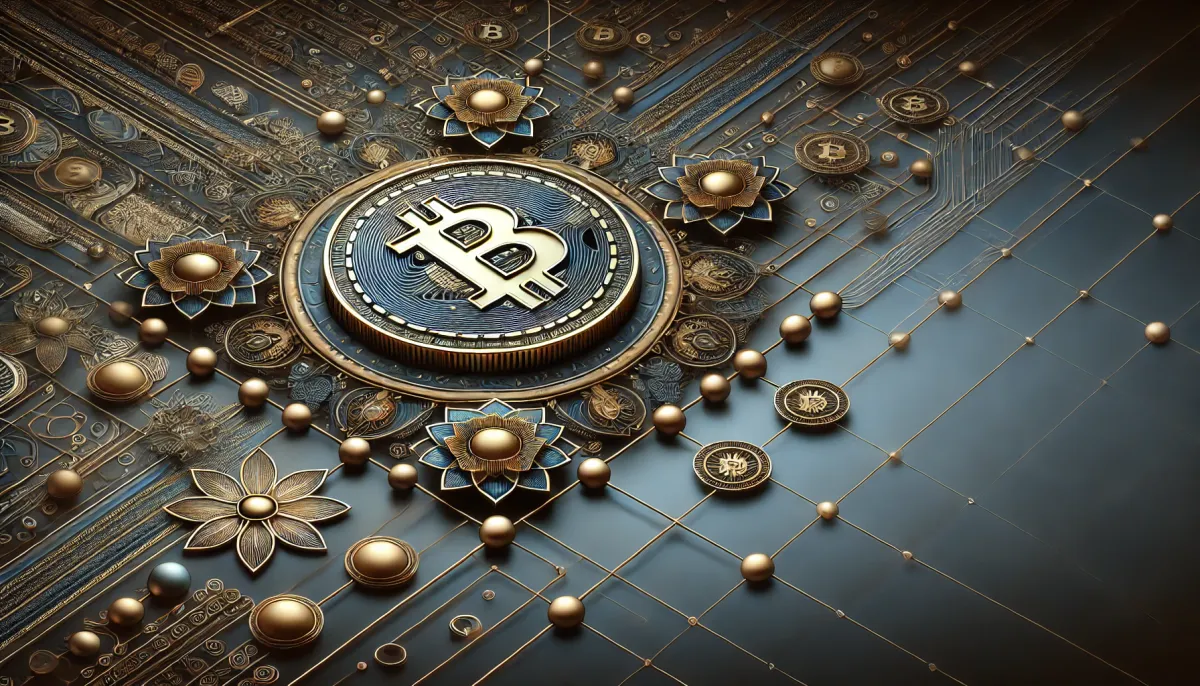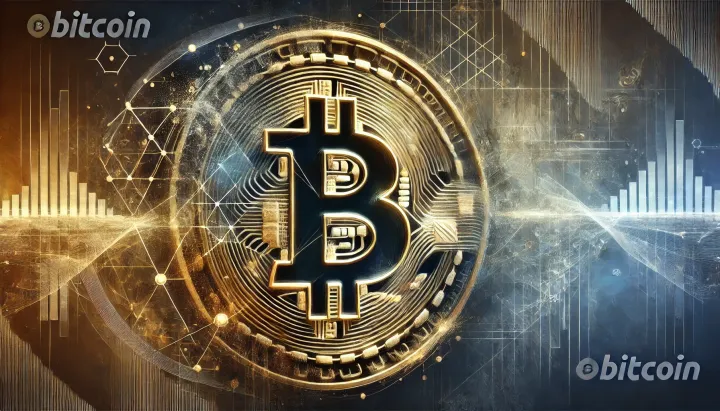Bitcoin and Financial Evolution in India’s Digital Landscape
The December 15, 2023 episode of The Transformation of Value podcast features Palash discussing Bitcoin’s potential in India, highlighting regulatory ambiguity, cultural preferences, and the rapid rise of digital payments.

- My 'briefing notes' summarize the content of podcast episodes; they do not reflect my own views.
- They contain (1) a summary of podcast content, (2) potential information gaps, and (3) some speculative views on wider implications.
- Pay attention to broadcast dates (I often summarize older episodes)
- Some episodes I summarize may be sponsored: don't trust, verify, if the information you are looking for is to be used for decision-making.
Summary
The December 15, 2023 episode of The Transformation of Value podcast features Palash discussing Bitcoin’s potential in India, highlighting regulatory ambiguity, cultural preferences, and the rapid rise of digital payments. With insights into challenges like inflation, financial literacy, and privacy, the podcast explores how Bitcoin could transform remittances, savings, and payment options in the world's largest democracy. Key focus areas include necessary educational efforts, Bitcoin’s role against traditional savings methods, and India’s regulatory approach.
Take-Home Messages
- Regulatory Clarity Essential: Clear legal status is necessary to enable confident Bitcoin adoption across India.
- Cultural Context Matters: Positioning Bitcoin as a long-term savings option, like gold, may aid acceptance in India.
- Educational Outreach Needed: Grassroots, hands-on education will bridge knowledge gaps for new Bitcoin users.
- Privacy Advantage: Bitcoin’s pseudonymous nature appeals to those concerned with tracking in centralized systems like UPI.
- Remittance Potential: Bitcoin offers a lower-cost solution for India’s significant remittance market, benefiting households dependent on overseas income.
Overview
In this December 15, 2023 episode of The Transformation of Value podcast, guest Palash discusses how India’s engagement with Bitcoin is influenced by deep cultural and regulatory factors. Gold’s status as a safe, tangible asset presents a cultural barrier but also serves as a comparison point for Bitcoin advocates positioning Bitcoin as a modern equivalent, especially with inflation affecting the rupee’s value.
The government’s monetary policies, such as the 2016 demonetization, have stirred interest in Bitcoin as a decentralized store of value. Despite India’s rapid adoption of digital payments, particularly through the Unified Payment Interface (UPI), privacy concerns persist due to the centralized tracking inherent in UPI. Bitcoin’s decentralized, pseudonymous features may appeal to those wary of government oversight, offering a viable alternative.
Bitcoin’s potential role in India’s substantial remittance market, as the largest recipient of global remittances, is another significant point. Palash highlights Bitcoin’s potential to reduce costs and simplify cross-border transactions, benefiting millions of households reliant on foreign income. However, the regulatory ambiguity surrounding Bitcoin and India’s planned central bank digital currency (CBDC) introduce new challenges, as a CBDC might compete with or even limit Bitcoin’s role in the financial system.
Finally, Palash emphasizes the need for inclusive educational initiatives. A grassroots approach to Bitcoin education is critical, especially in rural and low-income areas where digital literacy remains a hurdle. Palash argues that clear, accessible guidance will empower individuals to responsibly engage with Bitcoin, bridging existing knowledge gaps.
Stakeholder Perspectives
- Government: Aims to retain monetary control through CBDC initiatives, viewing Bitcoin’s decentralization as a challenge to state authority.
- General Public: Displays curiosity post-demonetization but remains cautious, largely due to limited Bitcoin education and perceived volatility.
- Financial Sector: Sees potential in Bitcoin for remittances and as an inflation hedge but remains concerned about regulatory uncertainty.
- Educational Advocates: Call for targeted Bitcoin education to ensure responsible adoption, especially within underserved communities.
- Rural and Low-Income Communities: Stand to benefit from Bitcoin’s inflation protection and remittance utility but need hands-on education to integrate it effectively.
Implications
Bitcoin’s future in India hinges on regulatory developments, educational outreach, and cultural shifts in financial practices. A clearer stance from regulators would enable businesses and individuals to engage with Bitcoin confidently, potentially expanding its role in remittances, savings, and peer-to-peer payments. Bitcoin’s decentralized nature aligns with growing privacy concerns among UPI users, appealing to citizens seeking alternatives to centralized tracking.
The potential for Bitcoin as a store of value, particularly amidst inflation, offers opportunities for long-term financial stability. Targeted educational initiatives could transform Bitcoin into a viable alternative savings tool, helping Indian households diversify assets in a manner similar to gold. As adoption grows, Bitcoin’s impact could extend beyond personal finance, influencing the broader financial ecosystem by reducing remittance costs and improving financial inclusion.
Future Outlook
As inflation pressures savings, Bitcoin’s decentralized and fixed-supply nature could position it as a practical alternative for value preservation if supported by favorable policies. The government’s CBDC may create competition, positioning itself as the official digital currency while framing Bitcoin as a less stable, riskier option. However, public interest in financial autonomy and privacy suggests a space for Bitcoin as an alternative, particularly among those concerned with centralized control.
Educational initiatives will play a critical role in building foundational understanding. A grassroots approach that addresses cultural values and practical use cases will be necessary to support Bitcoin’s role as a viable asset. Generational and cultural shifts toward digital finance, particularly among tech-savvy younger demographics, suggest that Bitcoin could gain ground, especially if it is introduced in relatable, accessible formats aligned with existing financial practices.
Information Gaps
- What legislative changes could clarify Bitcoin’s legal status in India and encourage broader adoption? Understanding the necessary regulatory adjustments would provide insights into how government policy can shape the adoption landscape.
- What would it take for Bitcoin to gain cultural acceptance as an alternative to gold for long-term savings in India? Exploring factors that could position Bitcoin alongside gold as a trusted savings option would help advocates tailor outreach to cultural norms.
- How could Bitcoin reduce transaction costs in the Indian remittance market, and what policy changes would facilitate this? Investigating Bitcoin’s remittance utility could reveal cost savings and guide efforts to reduce fees in India’s extensive remittance sector.
- What hands-on educational methods could effectively introduce Bitcoin to communities with low digital literacy in India? Identifying practical educational strategies is key to supporting Bitcoin’s adoption in rural and underserved areas.
- How might the Indian government’s CBDC initiative affect public perception and adoption of Bitcoin? Analyzing how a CBDC could influence Bitcoin’s appeal will clarify the competitive dynamics and inform positioning strategies.
Broader Implications
Policy and Regulatory Impact
India’s uncertain regulatory approach to Bitcoin impacts its adoption and could shape future digital asset policies globally. Clear, supportive regulation in India may set a precedent, encouraging other nations to adopt Bitcoin-friendly policies while showcasing its role in financial independence. If regulatory ambiguity persists, Bitcoin use may shift to unofficial channels, complicating oversight and creating parallel financial ecosystems.
Cultural Acceptance and Asset Diversification
India’s cultural attachment to gold as a savings vehicle highlights a major challenge for Bitcoin adoption but also presents an opportunity. By positioning Bitcoin as a complement to gold in wealth preservation, advocates can introduce it as a viable digital asset with multi-generational appeal. This cultural alignment could gradually shift perceptions, enabling Bitcoin to diversify savings practices across a population that values long-term, stable assets.
Financial Inclusion and Economic Opportunity
Bitcoin’s potential in India’s remittance market offers a practical use case for financial inclusion, benefiting households reliant on cross-border income. Given India’s significant unbanked population, Bitcoin could offer an alternative to traditional banking, facilitating access to financial services without infrastructure constraints. Over time, Bitcoin may drive local economies by empowering users in underserved areas to transact directly, fostering grassroots economic growth.



Comments ()